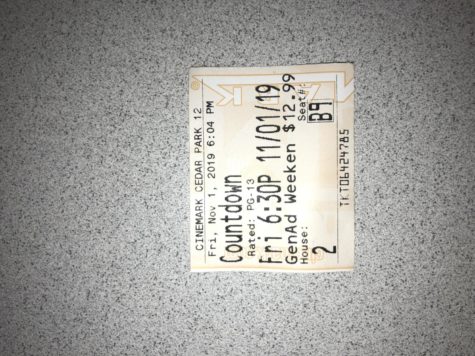‘Book of Eli’ Pinnacle of Creativity, Emotion
January 21, 2010
The white mist of nuclear fallout descends upon an ominous forest somewhere on the American mainland.
Corpses litter the foliage of the dead landscape, providing a grim backdrop for a pale cat who strolls the graveyard, scavenging for food. As the cat approaches a body, the labored breathing of another creature barely reaches its ears. The cat rises to attention, paranoid about the new sound.
Among the leaves and shrubs of long dead plants, a solitary figure watches the feline with the stillness of a sculpture. Silence returns to the forest, and tension rises as the absence of life prophesizes the cat’s grim future.
After what seems like an eternity of silence and suspense, the tension is literally relieved as the figure unleashes an arrow towards the sphinx, and skewers the animal in ruthless precision. Eli, the huntsman, approaches his dinner.
This opening sequence is only the tip of the iceberg compared to the uniqueness and singularity of the storytelling used to create the post-apocalyptic America in the recently released film, “Book of Eli.”
Eli, played by Denzel Washington is a survivor from the days before, the vernacular that describes the world before an atomic war that ravaged the surface of the Earth. Few from the days before survived the catastrophe of nuclear explosions and radiation, so as Eli treks across the American wasteland, those he meets give him a wide berth.
Post-nuclear war for America is grim at best; highwaymen and motorcycle gangs dominate the roads and harass anyone who cannot defend themselves. Eli hardly falls into this category though. When confronted with seven highwaymen at the beginning of the movie, he subdues all of them swiftly and flawlessly. Eli is not the berserker savage that the highwaymen represent, he maintains a calm and collective mood while slaying the oppressive marauders. And as he towers over the bodies of his attackers, Eli recites scripture from the King James Bible, asking God to forgive him for the terrible things he has done.
In a world wrought with tyranny, barbarism, and despair; Eli is the prophet of hope for the survivors of Armageddon.
Although the setting of the film is grim and dark compared to other contemporary movies, “Book of Eli” is an emotionally moving epic. The horrible state of civilization only makes the audience more emotionally involved, for Eli’s quest promises salvation for the new dark age of America.
The film has adult themes, and any child under the age of 13 should not see “Eli,” but for older audiences that can withstand the graphic elements of post-apocalyptic society, “Book of Eli” is a must see for 2010. The graphic elements are necessary; they highlight the barbarianism of our existence without hope. Hope is the quest of Eli, a quest which is driven into the hearts and minds of all who see this legendary journey.







